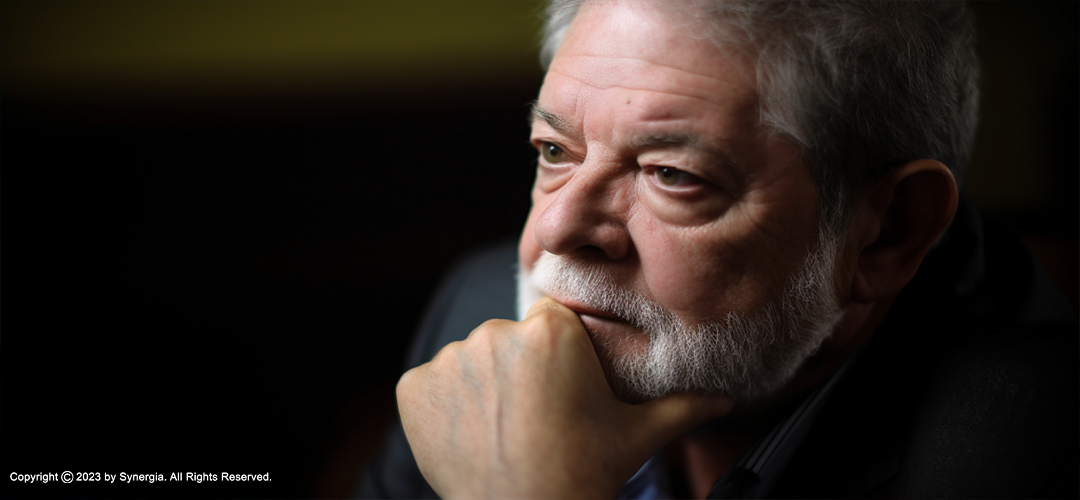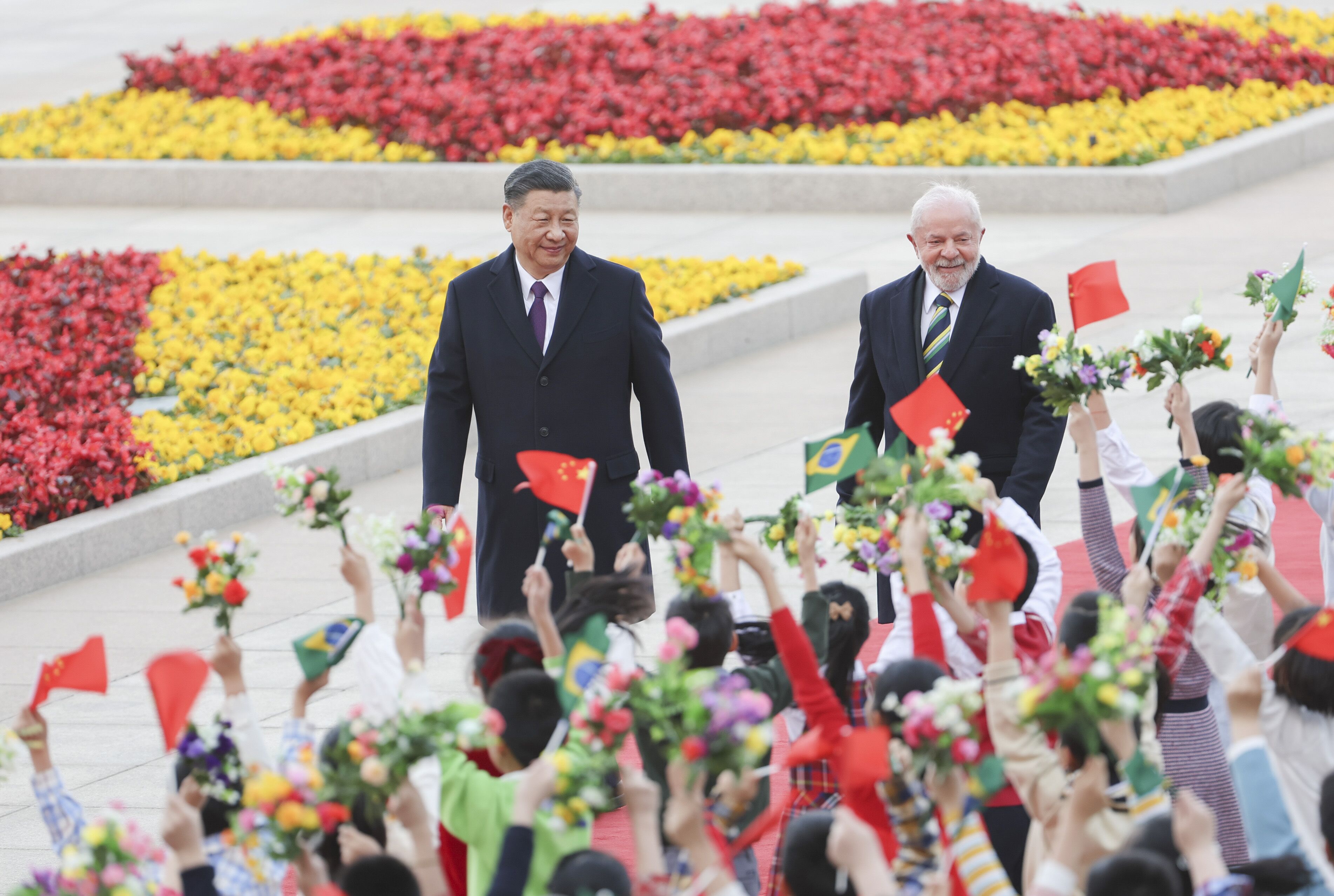Brazil: Tacking Against the Wind?
April 22, 2023 | Expert Insights

Since the beginning of the war in Ukraine, countries in the Global South have been in a conundrum. They have been asked to choose sides which has not been easy. While many have strong military and commercial ties with Russia, few wish to get on the wrong side of the U.S.
In light of this, Brazil's recent foreign policy moves are highly significant.
Background
Latin America has historically been considered the regional backyard of the United States. Regime changes triggered by the CIA have been a recurring feature of the region where right-wing authoritarian regimes have flourished. A left-wing government in its close proximity is an anathema to the American security establishment; long-suffering Cuba is a living example.
Jair Bolsonaro of Brazil, in a sense, was an aberration. His political doctrine closely matched that of President Donald Trump, whom he, in many counts, tried to mirror. Like Trump, Bolsonaro also called climate change a 'huge fraud, ' stridently protested Chinese inroads into Latin America and favoured far-right extremist policies, especially where the minorities were concerned. Under him, Brazil drew itself into a self-protective cocoon, disengaging from its global commitments, just like Trump.
Lula de Silva's election with a razor-thin margin was a political turnaround ushering in huge changes. There were renewed hopes that Brazil would once reintegrate itself with the global community. When Lula was campaigning for presidentship one year back, his comments on the war in Ukraine, quoted by Time Magazine, were more balanced," Putin shouldn’t have invaded Ukraine. But it’s not just Putin who is guilty. The U.S. and the E.U. are also guilty. What was the reason for the Ukraine invasion? NATO? Then the U.S. and Europe should have said: “Ukraine won’t join NATO.” That would have solved the problem.”
However, Lula sprung many surprises on Washington once in power. Recently Brazil under Lula and China have decided on a trade agreement. Under this agreement, both these countries have agreed to trade in their currencies. This is an obvious rejection of the global supremacy of the U.S. dollar. Even worse for the West, the tone and tenor of Lula's assertions are getting even more embarrassing. In a recent interview given in Abu Dhabi, President Lula said that the U.S. must stop "stimulating the continued fighting and start discussing peace." In another interview, he asked Ukraine to cede Crimea as a quid pro quo to end the war, to the great annoyance of Ukraine and its Western supporters.

Analysis
But Washington has completely misread this change in political power. Lula was never a Western puppet, and rather he was always his own man. Of course, there was a convergence of interests in many areas with the U.S. This includes the fight against climate change and far-right extremism. But he was also fully aware of the dark history of the U.S. involvement in his part of the world.
While in power, he has maintained relationships with other left-wing governments in Latin America, including the Castro regime in Cuba. No amount of U.S. bullying has made him change his position in this area. He has tried to act as a bridge between the right and the left. Lula has consistently opposed any direct or indirect U.S. involvement in the internal affairs of any Latin American country.
Under the presidency of Lula, Brazil has also become more active in BRICS. This is a group of countries comprising Brazil, Russia, India, China and South Africa. Brazil, India and South Africa are middle powers out of these countries. That is, they are the dominant powers in their regions while having some influence worldwide. Of the two other countries in BRICS, Russia is a declining power, while China is a rising global power. So, through this arrangement, a new voice is being heard in the global arena, and Lula is using the platform in the loudest manner. This will not escape notice in Washington. Needless to say, Moscow has been delighted at all of Lula’s proclamations on Ukraine.
This balancing between Russia, China and the U.S. was fine before the war in Ukraine began. But with the coming of the Russia-Ukraine war, the Global South had to make a choice. It could no longer sit on the sidelines as world politics passed it by. Washington once again followed a strategy of you being either with us or against us. It tried to pressure these countries to take a stand. It has pitched this war as a global fight between autocracy and democracy.
So, there was intense pressure on many neutral middle powers like India, Brazil and South Africa to take a position one way or another. Until now, these countries have been calling for a cessation of hostilities by both sides and a return to peace talks. They have mostly abstained from any UN vote in the General Assembly, which has sought to condemn Russia and isolate Moscow internationally. But Western pressure on these countries to change their stance has not abated, and this has finally backfired on the West, as shown by President Lula.
The declaration from President Lula on the Russia-Ukraine war has met with a predictable backlash from Washington. The United States has said that Brazil is parroting Russian and Chinese propaganda.
But it looks like this U.S. backlash has had an effect on Brazil. President Lula has backtracked on his earlier statement. He has clarified that he categorically does not support the Russian position on this war. Brazil is for the maintenance of Ukraine's sovereignty and territorial integrity, and Brazil is trying to position itself once again as a neutral arbiter. Whether this whole episode increases or decreases Brazil's international reputation remains to be seen.
Assessment
- The recent Brazilian position should not come as a surprise. Lula's predecessor Bolsonaro also called for an end to the Russia-Ukraine war, urging both sides to sit down and talk. Of course, he was not positioning Brazil as a mediator.
- President Lula’s change in foreign policy needs to be seen in the larger context. He believes in a multi-polar world where Russia and China balance the U.S.. He has moved his country economically closer to Beijing to achieve this objective.
- What is clear from all this is that Brazil wants to curb the global power of U.S. economic imperialism. It cannot do this on its own or even with the help of like-minded countries. The U.S. economic hold over the world is too strong for any country to thwart it on its own. What is needed is another economic counter-pole. But will it result in a more just and equitable world order? Chinese economic imperialism is just as bad if not worse than its American counterpart.








Comments